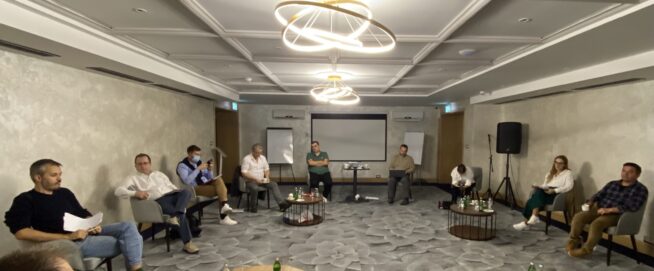
News
 Vrnjacka Banja, Serbia
Vrnjacka Banja, Serbia NEW APPROACHES TO NORMALIZATION

The Council for Inclusive Governance organized on September 30-October 2, 2021, in Vrnja?ka Banja, Serbia, a workshop for a group of experts from Serbia and Kosovo to brainstorm new approaches to normalization of relations. A comprehensive normalization agreement is the objective of the Brussels dialogue but the two sides have a different understanding of it. The presence of the EU and a promise of a tangible EU perspective infused dynamism into the process and allowed the EU both to reward the progress and to penalize backsliding. However, the EU membership seems a distant possibility. Rare are those who look at the “EU perspective” as a tangible promise today. The EU and the US seem to be engaged in a “policy of containment” in the Western Balkans. Without new proactive policies, the EU’s image in the region will continue to deteriorate. Both the EU and the US should rethink their position vis-a-vis the Western Balkans. Both have a lot of leverage in the region. A serious reflection process is needed to produce a new set of policies to reinvigorate the current dialogue. The participants produced a list of possible new polices that the EU and the US can apply.
The participants also discussed the issue of the current narratives and their influence on the process. Narratives surrounding the process are flawed, as they either inflate the expectations or inflict betrayal. As such, narratives negatively affect the public support for the dialogue. In addition, politicians in Serbia and Kosovo often engage in media spinning and create a false impression that they either enjoy the West’s support or are under the Western pressure, what could be detrimental in the future. If there is a will, narratives about the dialogue could be changed and move away from good vs. evil perception. They should be transformed to promote its benefits, such as the freedom of movement or the telephone code. For tackling the issue of narratives, crucial is to develop space for communication between Serbs and Albanians.
And finally, the participants discussed what elements are essential to reach the end goal of the process, which is a final deal. This also included potential incentives for Serbia and Kosovo to push them towards full normalization.
Participants
English Alphabetical Order
Nikola Burazer, Center for Contemporary Politics
Shpetim Gashi, Council for Inclusive Governance
Dukagjin Gorani, Musine Kokolari Institute
Violeta Haxholli, Democratic Institute of Kosovo
Ramadan Ilazi, Kosovar Center for Security Studies
Agon Maliqi, S’bunker
Petar Miletic, Analyst
Igor Novakovic, Council for Inclusive Governance
Jovana Radosavljevic, New Social Initiative
Alex Roinishvili Grigorev, Council for Inclusive Governance
Marko Savkovic, Belgrade Fund for Political Excellence
Sonja Stojanovic Gajic, Belgrade Center for Security Policy
Stefan Surlic, Faculty of Political Science, University of Belgrade








